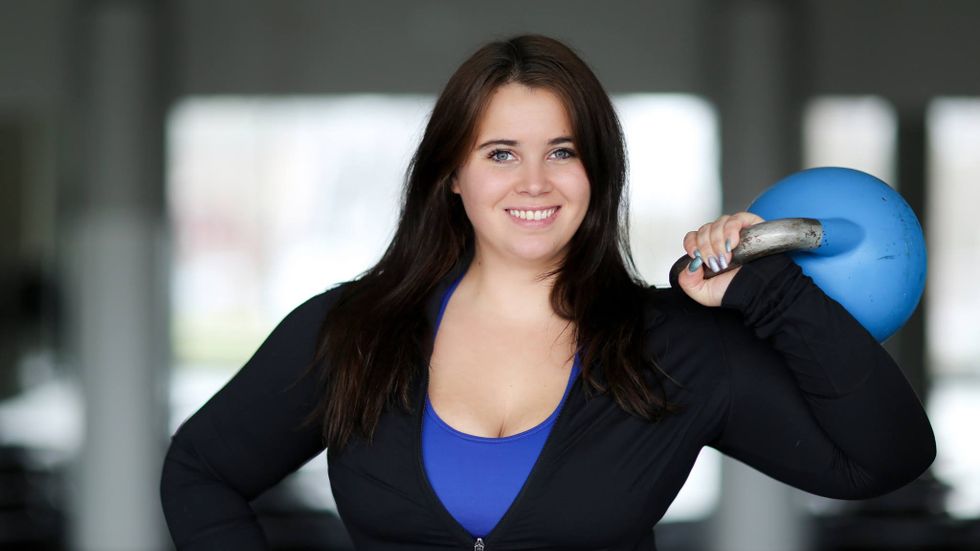
Uncovering The media illusion of slim = beautiful = happy = successful
According to a new European study, which was a collaboration between researchers from Portugal and Wales, it was discovered that overweight andobese women aged between 25 and 50 overcame emotional (comfort) eating habits and lost more weight when they were helped to love and accept themselves. More than 200 women, who had no other health concerns and were free of medication, participated in the study
In this study, the authors focused on helping the participants love and accept themselves in two unique ways:
- The women created an more realistic ideal body shape for themselves;
- The women felt greater acceptance for how they looked and realized thatthey were more than just their looks;
Results: The study showed that when the participants realized that their looks were less important than their sense of self and the importance of their life, they changed their emotional eating habits; they lost seven percent of their starting weight, whereas women who did not make this psychological realignment lost two percent. For a woman weighing 200Ibs, that’s a 10Ibs difference.
Making short-term decisions can lead to unhealthy eating, sleeping, andexercise choices. These choices cumulatively affect the health of our cells, and when our cells don’t function properly we experience symptoms that we label as disease, ranging from obesity, depression and anxiety, to cancer.
There is no doubt that media has made being slim (thin) acceptable and being overweight unacceptable. Increasing the burden on women to look thin and perfect all the time. Try to recall, when was the last time you saw an obese actress play a leading role in a major Hollywood movie?
Beauty, as rightfully said lies in the eyes of beholder and is far away from the physical appearance. There are plenty of women who have a lean, toned body, yet they too are unhappy, low on financial resources, and are unsatisfied with their lives.
Happiness is independent of our looks, it’s about being content with what we have in each and every moment, regardless of what we’re doing, what we look like, and how much money and material objects we have.
When you love yourself, just as you are RIGHT NOW, you are able to easily generate the emotions that motivate you to take care of yourself and do what needs to be done to be healthy every day.
The instant question that comes to mind is, How can I be HAPPY?
In a new SELF poll, the majority of women—75 percent!—say they’re dissatisfied with their shape. To see what’s behind this negativity, we asked nearly 1,000 respondents detailed questions about their body image and lifestyle, then compared the answers of the discontented group (we dubbed them “unhappies”) with the 25 percent who were satisfied with their figure (aka the “happies”).
According to James P. Krehbiel, Ed.S., LPC, Unhealthy eaters can untwist their maladaptive thinking and meet their weight goals by:
- Learning to rationally respond to negative thinking. For example, instead of saying, “I’ll never meet my weight goals, I’m just worthless,” one might say, “Just relax and be patient, Rome wasn’t built in a day.”
- Identify cognitive distortions such as castastrophizing, labeling, personalizing, and black and white thinking. An example might be, “If I can’t lose 5 lbs. this week I might as well give up” (black/white thinking).
- Instead of being unkind to yourself, talk to yourself the same compassionate way you would to a dear friend who is experiencing the same weight problem.
- Instead of assuming your negative thoughts are accurate, examine the evidence that supports your conclusions. “If I don’t lose 15 lbs., will people really think I am hopelessly obese?”
- Instead of taking full responsibility for your weight problem, you can assess the many factors that may have contributed to it and address those issues with the support of others.
- Set a realistic agenda. Ask yourself, “What would it be worth to me to stop my unhealthy eating? How hard am I willing to work on a rational solution?”
- Evaluate weight maintenance progress based upon the process — the effort you put in — rather than the outcome. Your efforts are within your control, but the outcome may not.
- Substitute language that is less emotionally loaded. “I shouldn’t have eaten that extra helping” can be redefined as, “It would have been preferable if I hadn’t eaten more.”
(James P. Krehbiel, Ed.S., LPC author, freelance writer and cognitive-behavioral therapist practicing in Scottsdale, Arizona).
Life is far too rich, interesting and short to waste on hating your body.
